NFTs or Non-Fungible Tokens are taking the world by storm, and Canada is no exception. With a growing interest in this digital asset, more and more Canadians are exploring the world of NFTs. In this article, we’ll take a closer look at what NFTs are and how they’re being used in Canada.


Allow me to explain! Non-fungible tokens, or NFTs, are one-of-a-kind digital assets representing ownership of a specific item, like digital art, music, collectibles, or even virtual real estate. Now, unlike cryptocurrencies like Bitcoin, which are fungible and exchangeable, NFTs are indivisible and cannot be swapped on a one-to-one basis. In other words, each NFT has its own unique value based on factors like rarity, provenance, and demand. Neat, huh?
Primarily, NFTs are built on the Ethereum blockchain, a decentralized platform that enables the creation of smart contracts. These nifty self-executing agreements have transaction terms coded directly into them, ensuring that NFTs are securely transferred between parties. Plus, the blockchain offers a transparent and tamper-proof record of ownership, making it a breeze to verify an NFT’s authenticity.
The NFT market has witnessed jaw-dropping growth in recent years. In 2020 alone, the total value of NFT transactions reached a whopping $250 million – a threefold increase from the previous year! This trend continued into 2021, with some NFT sales exceeding millions of dollars. For instance, Beeple’s digital artwork “Everydays: The First 5000 Days” fetched an astounding $69 million. Talk about a gold mine!
Several factors contribute to NFTs’ soaring popularity:
Canada has emerged as a significant player in the global NFT market, with several notable artists, developers, and entrepreneurs contributing to the industry. Boasting a robust tech ecosystem, the country fosters innovation and provides an ideal environment for NFT development and adoption.
Canadian artists like Krista Kim, who sold her digital artwork “Mars House” for over $500,000, are making waves in the NFT space. Additionally, Canadian companies such as Dapper Labs, the creator of CryptoKitties and NBA Top Shot, have played a crucial role in popularizing NFTs worldwide.
Canada’s forward-thinking approach to technology and its supportive regulatory environment have also contributed to its position in the NFT market. The country has established itself as a hub for blockchain technology, with major cities like Toronto and Vancouver hosting thriving crypto communities.
In a nutshell, Canada’s strong tech ecosystem, combined with its growing community of artists, developers, and entrepreneurs, has positioned the country as a key player in the global NFT market. As the industry continues to evolve, Canada is poised to maintain its role as an influential force in the world of non-fungible tokens. So, keep your eyes on Canada, eh?
Oh, Canada! The Great White North has been making waves in the NFT space, with a plethora of marketplaces and platforms catering to the unique needs of Canadian users. Here’s a quick rundown of some popular NFT marketplaces available to Canadians:
NFT marketplaces are just the tip of the iceberg. Virtual worlds and gaming platforms offer Canadians immersive environments to interact with and use their NFTs. Here are three leading platforms that have captured the hearts of Canadian users:
As the NFT market continues to evolve, innovative blockchain networks like Tezos and Theta Network are driving new advancements in NFT technology and adoption within Canada:
So there you have it, folks! The Canadian NFT landscape is as diverse and rapidly growing as the country itself, with numerous marketplaces, platforms, and blockchain networks catering to the unique needs of Canadian users. Keep an eye on this space, because the future of NFTs in Canada looks brighter than a sunny day at Niagara Falls!

Non-fungible tokens (NFTs) have taken the art world by storm, and Canadian artists are no exception. These unique digital tokens have given creators a new avenue to monetize their work and engage with fans in innovative ways. Canadian artists from various disciplines, such as visual arts, music, and animation, have been quick to embrace this new technology.
For instance, popular Canadian musician Grimes made headlines when she sold her digital artwork collection as NFTs for a staggering $6 million. Similarly, Toronto-based artist Krista Kim made waves with her NFT-based “Mars House,” a virtual architectural concept that fetched over $500,000.
The growing interest in NFTs has also led to the formation of artist collectives, like the Canadian NFT Artists Collective, which aims to support and promote local talent in the digital art space. Through such initiatives, Canadian artists are capitalizing on the NFT boom and finding new ways to reach global audiences.
The emergence of NFTs has had a profound impact on the Canadian art market and galleries. Traditional galleries, which once held a monopoly on art sales and exhibitions, are now faced with a new digital frontier that challenges their traditional business models.
NFTs have democratized the art market by providing artists with direct access to buyers without the need for intermediaries. This shift has forced Canadian galleries to adapt and explore new ways to engage with the NFT market.
Some galleries have chosen to embrace the change by hosting virtual exhibitions and partnering with NFT platforms to showcase digital art. For example, Toronto’s XPACE Cultural Centre held an NFT exhibition in May 2021, where artists could showcase their digital creations and discuss the implications of this new medium.
Others have taken a more cautious approach, waiting to see how the NFT market evolves before diving in. Regardless of their stance, it is clear that the NFT phenomenon has forever changed the Canadian art landscape, and galleries must adapt or risk being left behind.
As the NFT craze continues to gain traction, Canadian cultural institutions are also exploring ways to harness this technology. Museums, galleries, and other cultural organizations are investigating how NFTs can be used for fundraising, digital preservation, and engaging with audiences in new and exciting ways.
For example, the Royal Ontario Museum (ROM) has expressed interest in using NFTs to create digital replicas of their physical artifacts, ensuring that these pieces of history can be preserved and shared with a global audience. This could also open up new revenue streams for the museum, as they could potentially sell or license these digital replicas as NFTs.
In addition, NFTs could play a significant role in the future of public art in Canada. Cities like Toronto and Vancouver could leverage NFT technology to commission digital public art pieces, which could then be auctioned off to support local arts initiatives or city beautification projects.
As Canadian cultural institutions continue to explore the potential of NFTs, it is clear that this technology has the power to reshape the cultural landscape in profound ways. As the NFT market matures and becomes more widely adopted, it will be fascinating to see how Canada’s art and cultural institutions evolve and adapt to this new digital frontier.

As NFTs gain momentum in the digital world, it’s crucial for Canadians to stay informed about the legal and regulatory framework that governs these unique assets. In Canada, NFTs and other digital assets are subject to various laws and regulations, with a primary focus on consumer protection, anti-money laundering (AML), and securities regulation.
The Financial Transactions and Reports Analysis Centre of Canada (FINTRAC) is responsible for enforcing AML regulations. Under these rules, entities dealing in virtual currencies, like NFT marketplaces, must register with FINTRAC and comply with reporting and record-keeping requirements. This promotes transparency and helps prevent the use of digital assets for illegal activities – a crucial step in the right direction.
Additionally, the Canadian Securities Administrators (CSA) may classify some NFTs as securities, depending on their specific characteristics and how they’re offered and sold. If an NFT falls under the “securities” umbrella, issuers and platforms must comply with securities laws, including registration and disclosure requirements. Talk about playing by the rules!
When it comes to taxes, the Canada Revenue Agency (CRA) has given some guidance on the tax implications of NFT transactions. According to the CRA, NFTs are considered a form of property and are therefore subject to taxation. This means that individuals and businesses dealing with NFTs must keep detailed records of their transactions and report any gains or losses for tax purposes. Yes, even in the digital world, taxes are unavoidable!
Moreover, NFT transactions may also be subject to provincial sales taxes, depending on the province where the buyer and seller are located.
As the Canadian NFT market continues to evolve, regulators face a myriad of challenges and opportunities to ensure a fair, transparent, and secure environment for consumers and businesses. It’s like navigating a digital minefield!
One of the main challenges is the rapidly changing nature of NFTs and the technology behind them. Regulators must stay informed and adapt to these changes to develop and implement effective regulations that don’t stifle innovation. This may involve collaboration with international regulatory bodies, as NFTs often transcend national borders. It’s a global effort!
Another challenge is striking the right balance between consumer protection and fostering innovation. Overregulation could hinder the growth of the NFT market and limit the opportunities for Canadian businesses and artists to benefit from this emerging technology. However, a lack of regulation may expose consumers to risks, such as fraud and market manipulation. It’s a delicate dance!
Despite these challenges, there are also significant opportunities for regulators to shape the Canadian NFT market in a positive and sustainable manner. By developing a clear and comprehensive regulatory framework, Canadian authorities can promote transparency, protect consumers, and support the growth of a thriving and innovative NFT ecosystem. It’s a chance to make history!

The Canadian NFT landscape is currently buzzing with a host of emerging trends and innovations that are redefining the future of this digital asset. One significant trend is the growing interest in NFTs from both mainstream and niche industries. Consequently, numerous Canadian companies are keen on exploring NFTs as a means to monetize digital content, amp up brand engagement, and deliver unique user experiences.
Another noteworthy trend is the marriage of NFTs with gaming and virtual reality platforms. Canadian developers are crafting immersive experiences where users can own and trade digital assets in virtual environments. Popular platforms like Decentraland and Sandbox are gaining traction among Canadian users, a testament to this trend.
Moreover, the Canadian NFT landscape is witnessing a surge in the adoption of environmentally friendly blockchain solutions. Given the growing concerns about the environmental impact of blockchain technology, Canadian NFT platforms are opting for eco-friendly solutions like proof-of-stake consensus mechanisms to curb energy consumption.
The potential of NFTs in Canada extends far beyond the realms of art and gaming, with a plethora of industries poised to benefit from this technology. Here are a few examples:
Despite the growing interest in NFTs, several challenges and barriers to their widespread adoption in Canada still exist. One significant challenge is the lack of understanding and awareness of NFTs among the general public. This knowledge gap can hinder the adoption of NFTs by individuals and businesses that could otherwise benefit from this technology.
Regulatory uncertainty also poses a challenge to NFT adoption in Canada. As the legal framework surrounding digital assets continues to evolve, businesses may be hesitant to invest in NFT initiatives due to potential compliance risks. Clearer regulations and guidance from Canadian authorities would help alleviate these concerns and promote the growth of the NFT market.
Scalability and interoperability are additional barriers to NFT adoption. Many blockchain platforms currently struggle to handle the increasing volume of NFT transactions, leading to high fees and slow processing times. Furthermore, the lack of interoperability between different blockchain networks can limit the functionality and utility of NFTs. Addressing these technical challenges will be crucial in facilitating the widespread adoption of NFTs in Canada.
In a nutshell, while opportunities for NFT adoption across various industries abound, challenges like limited public awareness, regulatory uncertainty, and technical barriers must be tackled to ensure the growth and success of the Canadian NFT market. So, buckle up, and let’s see how the great Canadian NFT adventure unfolds!

